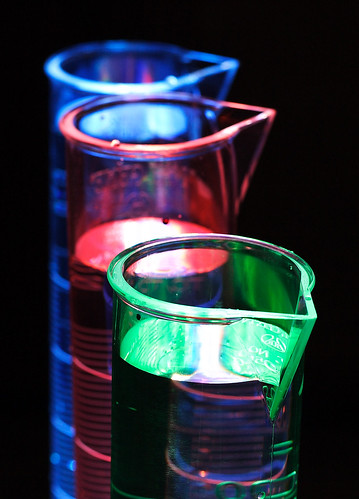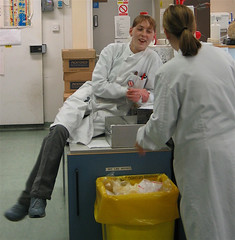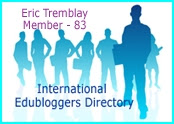Well, there’s one company out there that is turning the concept of late night science experimentation into a complete success story. Coincidentally, they are called Late Night Labs. Their flagship product, REACTOR, is an entirely web-based chemistry lab simulator. Currently they have upwards of 100 simulated chemistry experiments developed that target the high school and first year college/university level. The system is completely customizable and an instructor can use an experiment off the shelf, build an experiment from scratch or they can modify an existing experiment to create a new experiment. Instructors can choose and sequence the experiments and present customizable views to students so that when a particular student logs onto the system, they only see the experiments that the instructor wants them to see. In addition, detailed logs are created showing exactly which experimental steps were conducted in the laboratory simulation and because these logs are available to both the student and the instructor, they become a powerful tool in debugging failures in experiments due to incorrectly followed protocols and they also serve as record of proof that the student successfully undertook the experiment. Very nice!
 Late Night Labs has one experiment that is free for anyone to try. It's a short and simple neutralization reaction experiment - and basically serves more as an orientation to the interface than anything else. You can find it here. Just click the "sample lab" button. Try it out and see what you think. If you want to try more, they will issue a 2-week free trial for any instructor considering using the product in an educational setting.
Late Night Labs has one experiment that is free for anyone to try. It's a short and simple neutralization reaction experiment - and basically serves more as an orientation to the interface than anything else. You can find it here. Just click the "sample lab" button. Try it out and see what you think. If you want to try more, they will issue a 2-week free trial for any instructor considering using the product in an educational setting.As for the cost, it's significantly cheaper than a 'wet lab' or a kitchen lab. In general, the cost has two components: 1) an institutional license, and 2) a student license. Both licenses need to be in place for the system to be enabled. The institutional license is approximately $500/year and the student licenses range between $25-$50/year (these figures are approximate and depend upon your institutional requirements). Also, there is no computer support required from the institution as this software is all web-based and all data is stored on the servers of Late Night Labs.
It goes without saying, that computer simulations are also significantly safer than real-life chemistry labs as well. Using Late Night Labs, you can seal a beaker of water with a rubber stopper and you can boil it over a Bunsen burner until the beaker explodes just like in real life, except you won't be badly burned in the process (*smile*)
Have you used Late Night Labs or a similar product in your educational setting? If so, please leave a comment below letting us know the strengths and weaknesses.
Image credit: here.
 Eric's ramblings, experiences and random thoughts about e-Learning, distance education and Educational Technology.
Eric's ramblings, experiences and random thoughts about e-Learning, distance education and Educational Technology.







